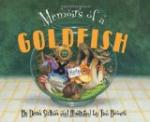As we lose the capacity for hard work we shall find that we need something to take its place—something more substantial and less unsatisfactory than sitting in the club window or taking in the Broadway shows. But, at least, the seeds of these interests must be sown now if we expect to gather a harvest this side of the grave.
What is more natural than to believe that in our declining years we shall avail ourselves of the world’s choicest literature and pass at least a substantial portion of our days in the delightful companionship of the wisest and wittiest of mankind? That would seem to be one of the happiest uses to which good books could be put; but the hope is vain. The fellow who does not read at fifty will take no pleasure in books at seventy.
My club is full of dozens of melancholy examples of men who have forgotten how to read. They have spent their entire lives perfecting the purely mechanical aspects of their existences. The mind has practically ceased to exist, so far as they are concerned. They have built marvelous mansions, where every comfort is instantly furnished by contrivances as complicated and accurate as the machinery of a modern warship. The doors and windows open and close, the lights are turned on and off, and the elevator stops—all automatically. If the temperature of a room rises above a certain degree the heating apparatus shuts itself off; if it drops too low something else happens to put it right again. The servants are swift, silent and decorous. The food is perfection. Their motors glide noiselessly to and fro. Their establishments run like fine watches.
They have had to make money to achieve this mechanical perfection; they have had no time for anything else during their active years. And, now that those years are over, they have nothing to do. Their minds are almost as undeveloped as those of professional pugilists. Dinners and drinks, backgammon and billiards, the lightest opera, the trashiest novels, the most sensational melodrama are the most elevating of their leisure’s activities. Read? Hunt? Farm? Not much! They sit behind the plate-glass windows and bet on whether more limousines will go north than south in the next ten minutes.
If you should ask one of them whether he had read some book that was exciting discussion among educated people at the moment, he would probably look at you blankly and, after remarking that he had never cared for economics or history—as the case might be—inquire whether you preferred a “Blossom” or a “Tornado.” Poor vacuous old cocks! They might be having a green and hearty old age, surrounded by a group of the choicest spirits of all time.
Upstairs in the library there are easy-chairs within arm’s reach of the best fellows who ever lived—adventurers, story-tellers, novelists, explorers, historians, rhymers, fighters, essayists, vagabonds and general liars—Immortals, all of them.
You can take your pick and if he bores you send him packing without a word of apology. They are good friends to grow old with—friends who in hours of weariness, of depression or of gladness may be summoned at will by those of us who belong to the Brotherhood of Educated Men—of which, alas! I and my associates are no longer members.




